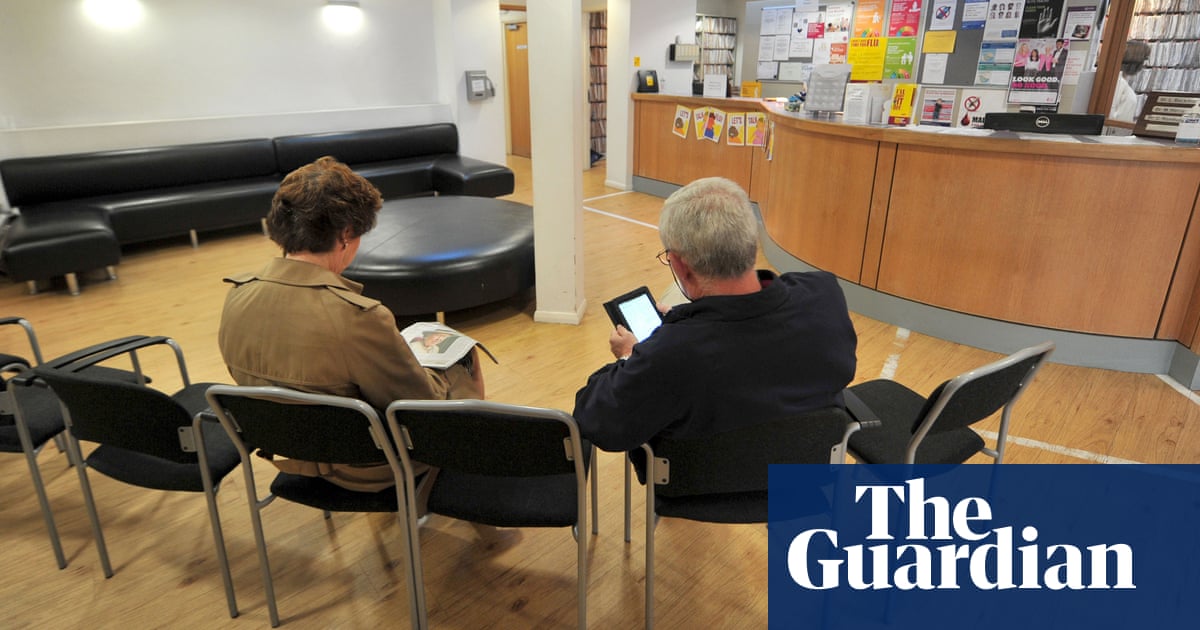
Asmall group of investors in expensive gilets gather for breakfast in a country lodge. Soon, they will hear a presentation from a private healthcare company. An MP is seated in the front row; a number of bankers are dotted around the room. “Here in the UK, we’re proposing a substantial public-private initiative, whereby we partner with the NHS,” the head of the healthcare startup tells the audience. Afterwards, the group put on their wellies and head outside for a pheasant shoot organised in their honour.
This scene from the recent BBC corporate drama Industry has stayed in my mind not because of its quality as fiction but because of its bearing on reality. As waiting lists grow, investors are gathering behind closed doors to seize the opportunities offered up to them by the NHS crisis. In the past two years, private equity firms have struck 150 deals for UK healthcare companies, according to figures reported by the Financial Times. These firms have bought up ambulance fleets, eye-care clinics and diagnostics companies. Last month, it was reported that one such firm acquired a staffing agency that employs NHS doctors and nurses, betting that the painful backlog of rescheduled appointments will be good for business.
From a financier’s perspective, this all makes perfect sense. In a low-growth economy, healthcare is one of the few sectors that is booming. People are living longer, medicine is getting better and the NHS crisis is creating more demand for private healthcare in England. Not long ago, the centre of this industry was Harley Street, the stately row of Georgian terraces that extends from Regent’s Park down towards Oxford Street. But that centre is now shifting and a new type of customer is emerging, one that is poorer and more desperate. Almost one in seven people in England are waiting for routine hospital treatment and many are struggling to get GP appointments. Some of them will go private simply because they don’t have another choice. Politicians who once dreamed of dismantling the NHS can now watch it happening in real time.
The private equity firms of today were born on Wall Street in the 1980s era of the “leveraged buyout”, a technique that involved buying up companies, often loading them with debt and then selling them on at a profit. Today, these firms are just as likely to be found managing the company that cares for your elderly mother, runs your toddler’s nursery, or delivers your cataract operation.
Private equity’s shift into these services is a symptom of one of the most extraordinary economic experiments in modern history. In the low-interest environment of the past decade, as the returns on investments such as government bonds dwindled, investors poured more money into private markets in search of higher returns, leading to an explosion in private equity deals. When high-octane finance starts moving into hospitals and nurseries, it’s a morbid sign that other opportunities for productive investment have been exhausted. Rather than financing new ideas, investors are capitalising on the basic necessities of life.
Germany’s experience ought to be a cautionary tale. The German healthcare system, which is often praised by rightwing thinktanks in Britain as a model to emulate, has seen numerous private equity deals in recent years. Firms have bought up more than 500 German ophthalmology practices and hundreds of dental practices. The results should be concerning to anyone who cares about public health. Eye doctors have described how they face pressure to make “as much money as possible” by selling patients additional services, such as special examinations and cataract operations. One dentist told the German version of Panorama that she drilled into perfectly healthy teeth. Investor-run medical practices disputed the idea that they were looking to make “quick money”, but because this industry is notoriously opaque, it is difficult to tell how much money is being made or even how many practices have been bought out.
Similar investors have watched for years as governments in Britain starved the NHS of funds. “Private equity firms are just the latest in a long line of investors that have seized this opportunity,” Vivek Kotecha, a chartered accountant who runs an independent consultancy, told me. Under the guise of reform, politicians have broken the NHS up into smaller pieces like Lego bricks, creating new opportunities for private providers to step in. The lines between “private” and “public”, “citizen” and “consumer”, have become so scrambled that it is difficult to tell where one ends and the other begins. Hundreds of NHS consultants in England have become shareholders in private healthcare firms; thousands of blood tests and knee operations are already delivered by private firms. Attempting to book a GP appointment recently, I was told to first download an app that nudged me towards a selection of private, paid-for tests.
An important consequence of all this is something that the philosopher Chiara Cordelli writes about: there is a risk that the less we see public institutions as the provider of the services we receive, the less we feel we can trust those services or institutions. And the more the government depends on for-profit firms to deliver these services, the more it becomes a hostage to those same firms. This helps to explain why this situation keeps renewing itself and why there has been such a striking lack of imagination from the Labour party. When asked how he would deal with the NHS crisis, shadow health secretary Wes Streeting echoed his Conservative counterparts and pledged to use private companies to reduce waiting lists. For investors, it was a show of support. For patients, it’s a worrying indication that our politicians have little intention of arresting the decline of our public health service.
Hettie O’Brien is writing a book on private equity for Weidenfeld & Nicolson (UK) and Grand Central Publishing (US)












